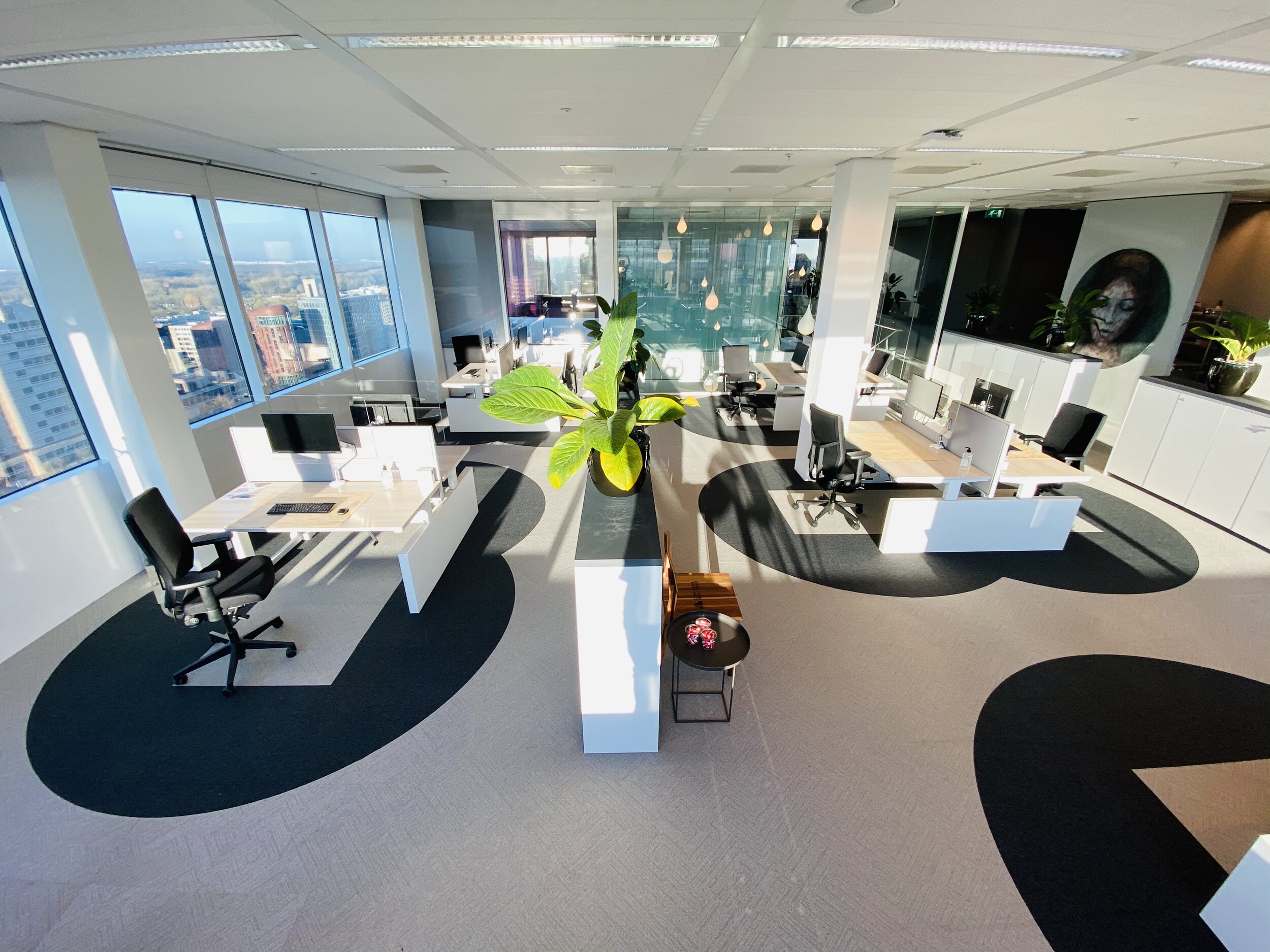The nasty plague had changed everything. Or has it?
The pundits are screaming that we will all work at home, even after the sickness has left our land. The office is toast and huge portfolios of office product will be as devoid of life as a Walking Dead set.
But let me ask you a question…are you prepared to say you will never again go to a restaurant? How about a ball game? Yes, we must be able to safely attend, but when we can, I bet you will. And with gusto.
But what about the office? Well, post virus, there will of course be some changes to how knowledge workers use the office. Don’t think for a minute, though, that it is going away. Prognosticators have been predicting the end of the office market and other breathless “certainties” for decades and every time they are wrong (remember the paperless office?).
Why Office Space?
Cushman & Wakefield economist Garrick Brown says the current Covid-19 pandemic spurned “a trickle up economic crisis, felt first by service workers. But as the impacts of their financial woes trickle up through the system, …almost every sector of the economy is going to feel an impact.” Then, as professional firms start issuing layoffs, workers will want to be highly visible. Put another way, Brown says, “out of sight, out of mind, out of a job.”
In the mid 2010s we saw a number of occupiers order people back to the office. This is because innovation is hard to maximize over a video meeting. A friend of mine calls the “aha” interactions that occur in the physical workplace “engineering serendipity.” I’ve made deals in the breakroom and had my colleagues share some fine ideas that they thought were just tossed away; I thought they were brilliant. The key to these interactions is they are unscripted and occur without warning. Hard to just happen by someone’s workspace in a Zoom.
The office projects culture and shared values. As C&W’s John O’Neill told me recently, “You can’t virtually manufacture culture.” To personify this idea of culture, think about an elite military squad vs teenagers in high school. Both have a culture defined in part by their physical environment. We’ve all had the experience of walking into someone’s office and immediately learning much about their company and their people.
Offices help salespeople deliver a message to prospects. The “marketing walk” is part of many presentations, and corporations love to have customers come in so part of the story can be told by their physical space.
Why do you think after the Great Depression many banks built branches with columns in front of buildings that were designed to look like Ft. Knox? The worried bankers wanted to project safety. This issue is still true today, even in light of massive e-commerce world. Especially in high dollar or high-risk decisions, seeing someone’s physical space provides psychological assurances that the sales promises can be delivered upon.
Offices are fun. I’ve had some great friendships develop in the office that will last a lifetime. We are humans and interacting is what we do. We have a deep seated and innate need to be together. If anything, the virus served to emphasize this need.
What Will Change
Let’s skip the return to work discussion for another time. In your mind, fast forward to when we finally have the much sought after vaccine and this thing is past us. Let’s also assume we are talking about “knowledge workers” who have control of their schedule and deliverables. Here are a few early peeks into the future.
Dedensification is going to be the rage. The virus popped up so suddenly and in such a terrifying manner that for some years to come, we will need our personal space and lots of it. Meeting rooms will of course be bigger and huddle rooms are no more. I personally think workstations will look like mini offices with floor to ceiling separations. Plus, high value workers will have one more reason to demand a private office – safety.
Ambiwork comes to the fore. What is this, you ask? Psychologist developed a term for people who present characteristics of both introversion and extroversion – ambiverts. We will indeed work at home more because (a) we can and (b) our remote work technology will improve even faster as a result of Covid-19. Put your capitalist hat on; there are many technologists who rightly see gold at the end of this virus rainbow. But we will continue to head into the office, because (a) we can and (b) see narrative above. We will simply have more flexibility and better tools to work anywhere on the planet.
The coming race to wellness will be like nothing we’ve seen yet. The architects and furniture types stand to make a fortune with new workstyles and all manner of products to clean, clean, clean. The HVAC folks will spin up all kinds of clean air machines, misters and the like, and the elevator engineers’ heads are spinning so fast you can see the steam. Much innovation is happening now and will be rapidly deployed later in 2020. I think 2021 could be the year of Mr. Clean.
It Will Be Fun to Watch
In 1897 a rumor swirled around London that the great Mark Twain was dead. A London based journalist working on a scoop sent a cable to his US colleagues pronouncing the grave news that Twain was passed.
The problem was, he was very much alive. He famously said “The Reports of My Death are Greatly Exaggerated.”
The next six months will bring some of the fastest and most significant changes to how workers physically house themselves ever. Including a new, uber clean and hopefully fun office environment.
The office isn’t dead at all. We’ve got yet another version of the workplace of the future developing before our very eyes. I for one can’t wait to see it.












